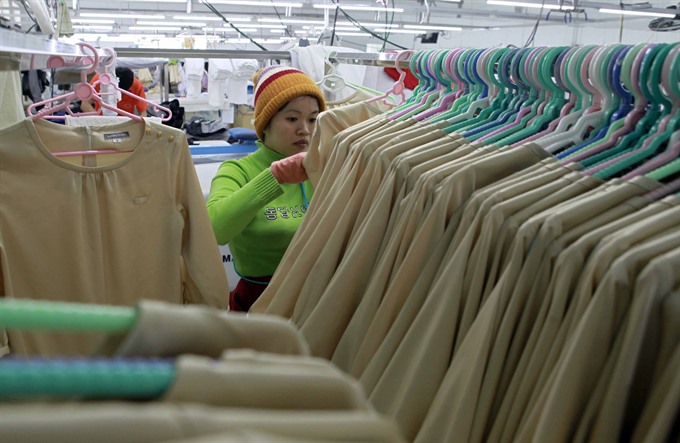The Vietnamese Government should focus on promoting electronic payments and online public services together with developing the start-up ecosystem in 2019, attendees heard at a conference by the Central Institute for Economic Management (CIEM) on Tuesday in Ha Noi.

The Vietnamese Government should focus on promoting electronic payments and online public services together with developing the start-up ecosystem in 2019, attendees heard at a conference by the Central Institute for Economic Management (CIEM) on Tuesday in Ha Noi.
The conference was held to review results of the Government’s Resolution No 19 on improving the business climate and enhancing national competitiveness.
CIEM’s statistics showed that the percentage of cashless payments in Viet Nam remained modest, only accounting for 11.49 per cent of total transactions. Nearly 85 per cent of transactions at ATMs were cash transactions.
The percentage of public services provided online was also modest, at only 6.89 per cent.
"Policies to leverage the development of electronic payments and the provision of online public services are needed," CIEM said.
Accordingly, the State Bank of Viet Nam should study amendments to regulations on cashless payments to promote their development in Viet Nam and eliminate the monopoly in the provision of switching services.
CIEM said that the central bank should announce the list of compulsory non-cash transactions which should include transactions like payments for water, electricity bills and high-value transactions.
In addition, CIEM proposed the national public services portal to be put into operation before September this year.
CIEM’s Director Nguyen Dinh Cung said that the key points of the Government’s Resolution No 2 this year, renaming resolution No 19, were increasing electronic payments and online public services.
The provision of online public services must go along with electronic payments to reduce face-to-face meetings between officials and citizens, he said.
In addition, focus should also be placed on promoting start-ups and entrepreneurship in terms of quality, Cung said.
Other improvements were also needed in enforcing contracts and resolving insolvency, Cung said, adding that the World Bank’s Doing Business 2019 report pointed out that these were two major bottlenecks in the process of improving the business climate in Viet Nam.
In addition, it was necessary to hasten deregulation of business prerequisites in terms of quality, Cung stressed.
“Viet Nam needs to continue speed up business climate reforms to promote the foundation of new firms and reduce the number of firms halting operations and reduce costs for businesses,” Cung said.
According to Dau Anh Tuan, head of the Viet Nam Chamber of Commerce and Industry’s Legal Department, the simplification and removal of business prerequisites must focus on quality.
Tuan added that the issuance of new business prerequisites must be put under tight control to prevent new barriers.
According to CIEM, Viet Nam’s business climate improved significantly after five years of implementing Resolution No 19, ranking 69th out of 190 economies, moving up 21 spots compared to 2015.
Out of the ten indicators on the World Bank’s Doing Business report, Viet Nam in the five-year period made improvements in getting electricity, paying taxes, protecting minority investors, starting a business, getting credit and dealing with construction permits.
However, the country moved down in registering property, trading across borders, enforcing contracts and resolving insolvency. — VNS





